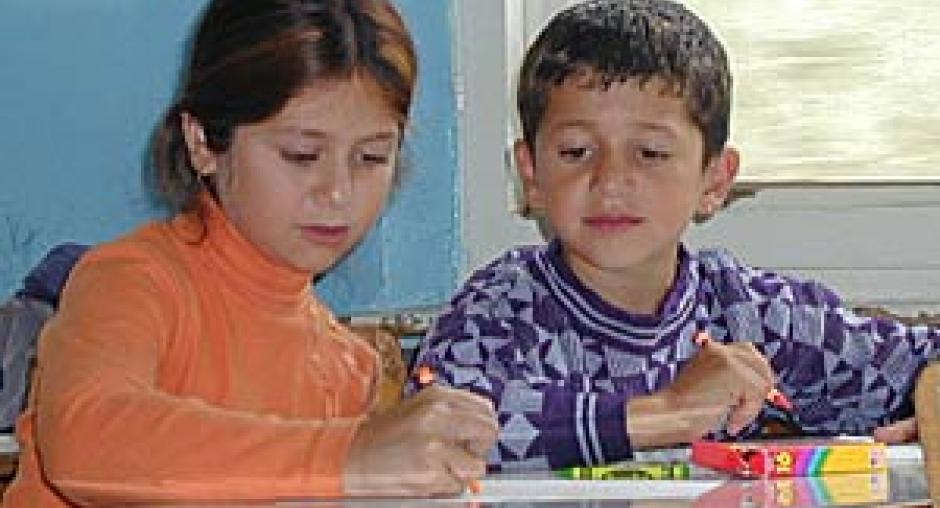Roma children go to school
The background
Ramajana and Jasmina, both seven years old, are neighbours and best friends. Generally, they pass the summer months playing in their village of Èubriæ, seated among the rolling hills and valleys of northern Bosnia and Herzegovina. But this year, the girls are spending their time on a much more important activity. For the first time ever, they are attending school.
The girls are part of a group of 23 children, who are taking part in summer classes for Roma children. The first-time pupils are aged between 7 and 13 years old and come from Èubriæ and the neighbouring village of Oskova. They are among the high number of Roma children who have missed out on regular education.
"We really hope that these basic lessons will give Roma families the necessary confidence to enrol their children in regular school when classes resume in September," says Enver Mehic, the Roma teaching assistant at the summer school. There are many reasons why Roma children either never start to attend or drop out of school. Roma non-governmental organizations (NGOs) cite the fear of discrimination, poverty and parental indifference as the main reasons why children like Ramajana and Jasmina did not start school at the age of six.
The project
The summer school is part of a concerted effort by local authorities and the OSCE Mission to change the fate of Roma children, who might otherwise never attend school. After having analysed the distribution and educational needs of Roma, the OSCE experts identified locations for schools and afterwards supervised and supported their work.
Most importantly, the OSCE acted as an intermediary between Roma self-help associations, local education authorities and the different sponsors of the summer schools. These schools will help the Roma children catch up with other children their age. Providing them with an opportunity to learn is one way of changing their fortunes.
Significantly, the project has the full backing of the local education department and Roma NGOs. Local authorities have promised to increase their efforts to register Roma children for regular primary school when they reach the age of six. On the other hand, Roma self-help groups have taken on the important task of convincing parents of the need to send their children to school.
A beginning
On the first day of the summer school, the mood of the children is a mix of excitement and enthusiasm. "I am happy to be here because I want to learn how to count my pocket money," says ten-year-old Alen. "I want to know how to play the guitar. Will they teach us that?" asks his friend Esed, aged nine, before he starts performing a popular local folk song. The other children join in unison.
Educators believe the key to success is making sure the students enjoy school. "I don't want to make the children sit down and listen to lectures all morning," says teacher Amela Hasic. "Instead, the children will be taught a number of basic skills through play and interaction with their classmates. The first lessons will focus on social and language skills, which are essential when you go to regular school."
The teacher turns to the class and starts distributing colouring and activity books, crayons and pencils - a donation from fellow schoolchildren in the US and from SFOR, the NATO-led military force. The singing stops as the children begin inspecting their new utensils. Immediately, they ask how to write out their names. The teacher smiles and starts spelling out the alphabet on the blackboard. The first day of school has begun.

